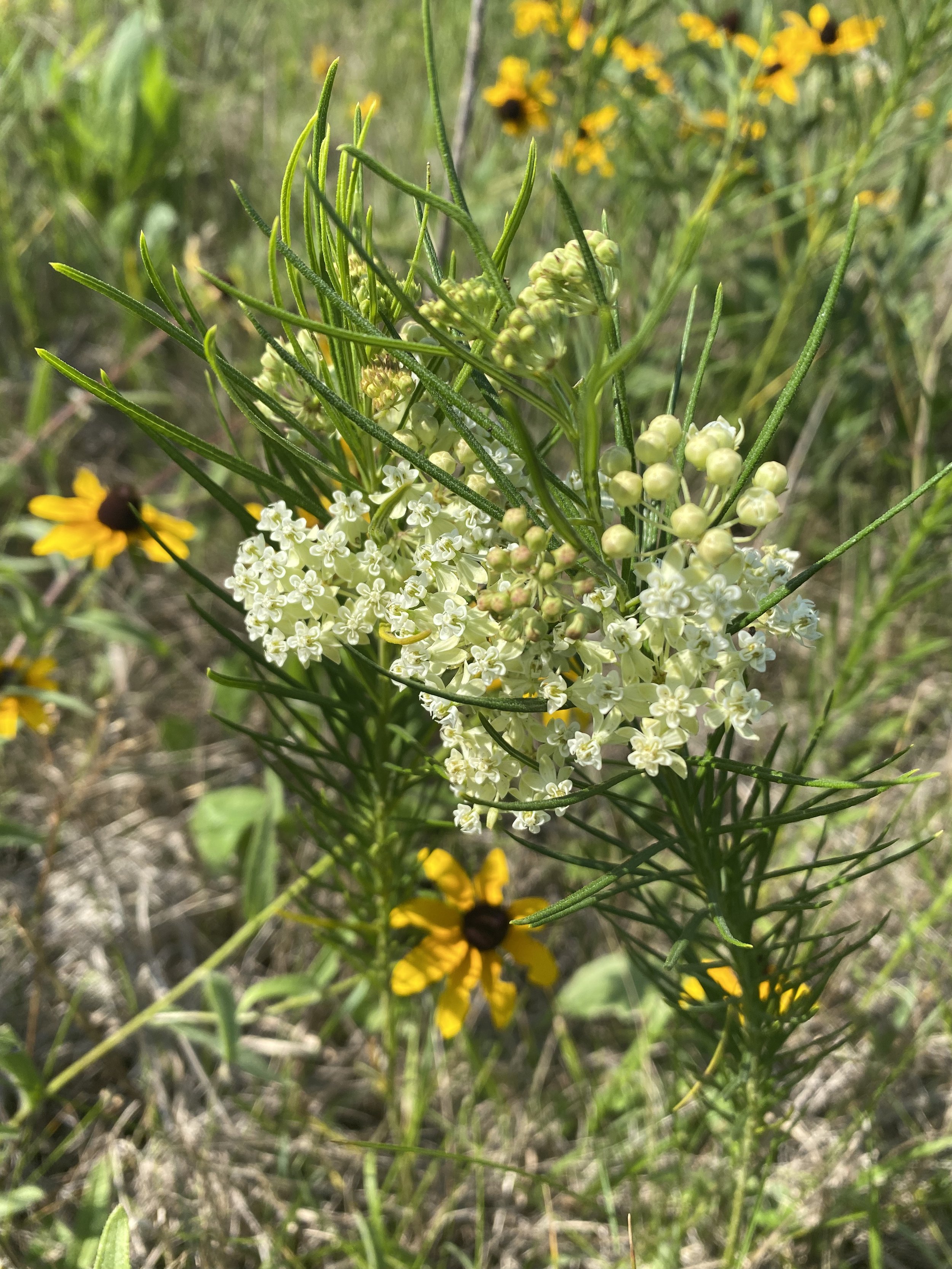Thank you everyone! We are now done collecting milkweed seeds in Fall 2023.
Monarch caterpillar feasting on a common milkweed. Madison Audubon photo
Milkweeds are the host plant for monarch caterpillars, making them essential for healthy monarch populations. Last year, you helped Madison Audubon collect 129 pounds of milkweed seed — that is INCREDIBLE! In the past three years, our efforts have resulted in 2,700 additional acres of monarch habitat in Wisconsin. According to researchers, that is enough milkweed stems to send 45,000 monarchs to their wintering grounds in Mexico.
This fall, we’d love your help again! Madison Audubon, the Wisconsin Monarch Collaborative, and Columbia/Marquette County Pheasants Forever are working to collect 100 pounds of pure live milkweed seed, and we need your help to achieve it!
You can collect seeds two ways:
Collect seeds on your own property, a neighbor’s property, or other property you have access to.
Or, join our seed collecting events at Goose Pond Sanctuary on Saturday mornings this fall to help collect seeds at our sanctuary.
What We’re Looking For:
The primary focus is on common milkweed since it is indeed common and found in old fields, along roadsides, and possibly in your yard. We also would like people to collect swamp, butterfly, and whorled milkweed seed as they are highly desirable species that are not easy to locate in large numbers.
Photos below by Madison Audubon unless noted otherwise
Common milkweed flower
Common milkweed pods (not quite ripe)
Swamp milkweed flower
Swamp milkweed pod (not quite ripe)
Butterfly weed flower
Butterfly weed pods
Whorled milkweed flower
Whorled milkweed pod (Photo by Brett Whaley FCC)
If you’re collecting common milkweed, the minimum donation amount to drop off is 1 paper grocery bag full of pods. There is no minimum donation amount for other species of milkweeds.
Photo courtesy of The Ohio State University Extension
Step 1: Collect the Seed Pods
Peak milkweed collection will be September 20 into October, depending on your area. The goal is to pick pods when they’re ripe, and deliver them before they mold. Collection tips:
The best time to pick milkweed pods is after the seeds have turned brown, but the pods themselves have not opened. Check a few pods to see if the seeds are brown. If the pods have started opening, they’re still fine to pick.
Put the milkweed pods in a paper grocery bag (leave the top open) with the following information included (written on the bag, or on a slip inside):
Your name,
phone number,
email,
address,
date the pods were collected,
location where the pods were collected.
Please drop off pods ASAP and not more than four days after they are picked at one of the sites below. Seeds may rot after that time. Check to make sure by opening a couple of pods that they do not contain any fungus due to any wet, cool weather conditions.
If there are any bugs on the pods, see if you can tap them off before putting them into the bag. Some bugs are ok!
Cleaned seed is much appreciated. For some good visuals on collecting pods and cleaning milkweed seed check out the video by Graham below.
If you’re collecting common milkweed, the minimum donation amount to drop off is 1 paper grocery bag full of pods. There is no minimum donation amount for other species of milkweeds.
Collecting milkweed pods September 2020, video by Seth McGee
Step 2: Deliver the Bags of Pods
We're asking you to drop off paper bags with milkweed seed pods off at one of the sites below. Please call or email ahead to get the address and/or with questions:
Arlington, WI: Goose Pond Sanctuary’s Kampen Road residence (W7503 Kampen Road, Arlington). Contacts: Graham at 608-333-2947 or Mark at 608-333-9645 or goosep@madisonaudubon.org
Lake Mills, WI: Faville Grove Sanctuary’s Prairie Lane residence (W7490 Prairie Lane, Lake Mills). Place the bags of seeds/pods under the deck overhang by the basement door. Contact: bmarsicek@madisonaudubon.org
Rio, WI: The Martins’ Wildland Cabin north of Rio (N5867 Schliesmann Rd., Rio). Contact: Mark at 608-333-9645 or goosep@madisonaudubon.org
East Madison: Brenna’s house on the east side of Madison. Contact: Brenna at 608-513-0630 or bmarsicek@madisonaudubon.org
West Madison: Matt’s house on the near-west side of Madison. Contact: Matt at 608-886-2785 or mreetz@madisonaudubon.org
The seed will be cleaned at Goose Pond Sanctuary, and distributed across the state to public land managers and private landowners that are doing large-scale land restoration projects. Did you know that every 30 milkweed common stems provides enough resources for a monarch to reach Mexico? The more milkweed on the landscape — along with native nectar plants like goldenrods, asters, and liatris, the better for monarchs and all the creatures the benefit from those plants!
Please feel welcome to share this with others. Thank you for your help and caring for monarchs and milkweed!















